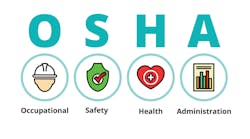The Occupational Safety and Health Administration (OSHA) has added an additional administrative and recordkeeping issue that employers need to consider about recording adverse vaccine reactions among workers.
In recently issued FAQs, OSHA states that if an employer requires its employees to be vaccinated as a condition of employment, then any adverse reaction to the vaccine is considered to be work related.
As a result, it would need to be recorded under OSHA rules when it is a new case and meets one or more of the general recording criteria in the recordkeeping regulation, for example, days away from work, restricted work or transfer to another job, or medical treatment beyond first aid.
On the other hand, OSHA says that it will exercise its enforcement discretion and will not require adverse reactions to be recorded when the employer only “recommends” that employees receive the vaccine, even if it provides vaccines or makes arrangements for employees to receive them offsite, point out attorneys John Ho and James J. Sullivan, Jr. of the law firm of Cozen O'Connor.
OSHA stresses that the “vaccine must be truly voluntary.” The agency explains that it must be the employee’s choice to accept or reject the vaccine without consequence to their performance rating or professional advancement, and an employee who elects not to take the vaccine cannot suffer any repercussions from their choice.
The FAQs do not directly address whether employers who provide incentives could cross the line from voluntary to mandatory, particularly if the incentive is more than nominal. In prior guidance issued in 2012, OSHA took the position that if an incentive is great enough that the loss of such an incentive would dissuade reasonable workers from reporting injuries, it could be retaliatory.
Ho and Sullivan recommend that employers be aware that this could be a potential issue with respect to vaccines and should consider making any incentive for an employee to receive a vaccine not so generous or enticing so as to raise the question of whether agreeing to the vaccination was truly “voluntary.”

